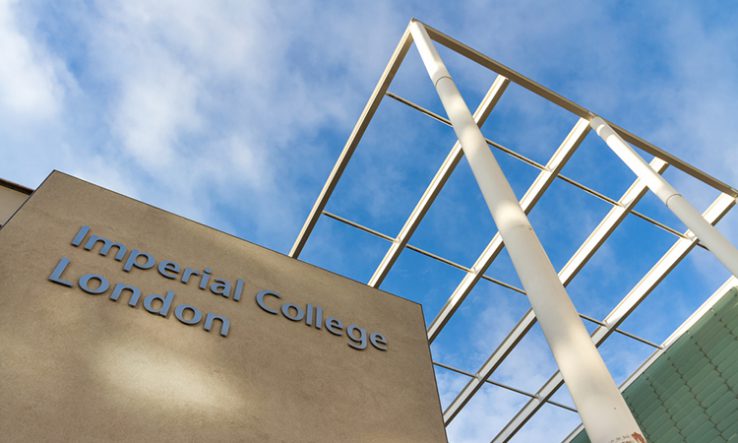
Image: Ivica Drusany / Shutterstock.com
Pilot scheme will enable scientists to identify emerging Covid-19 transmission hotspots on campus
Imperial College London has announced a new contact-tracing pilot to help control Covid-19 transmission.
Funded by a £1 million donation to the university from the Huo Family Foundation, the pilot will be conducted on campus as part of the Real-time Assessment of Community Transmission programme, known as REACT.
Led by Imperial scientists, together with clinicians and researchers, alongside colleagues at Imperial College Healthcare NHS Trust and Ipsos MORI, the REACT programme involves the testing of swabs taken at home monthly by over 100,000 people in England to determine the prevalence of Covid-19 in the community.
The programme is also assessing the feasibility of mass home antibody testing to indicate how many people have been infected and have recovered since the beginning of the outbreak.
The £1m donation will allow the director of REACT, Paul Elliott, and his team to convene a team of epidemiologists, statisticians, public health specialists, clinicians, virologists and data scientists to design and conduct studies of contact tracing and transmission.
“In the global fight against Covid-19, it is likely that governments end up with relative control of the virus at a national or regional level, but with an ongoing risk of localised clusters of infection that, left unchecked, could rapidly develop into major outbreaks,” said Elliott.
“University campuses are a key setting that could contribute to extensive spread or, with appropriate interventions, to enhanced control. To manage this risk, it is important to be able to identify emerging Covid-19 transmission hotspots on campus through regular testing and to understand how to intervene to successfully control new clusters of infections, for example through contact tracing and early treatment.”